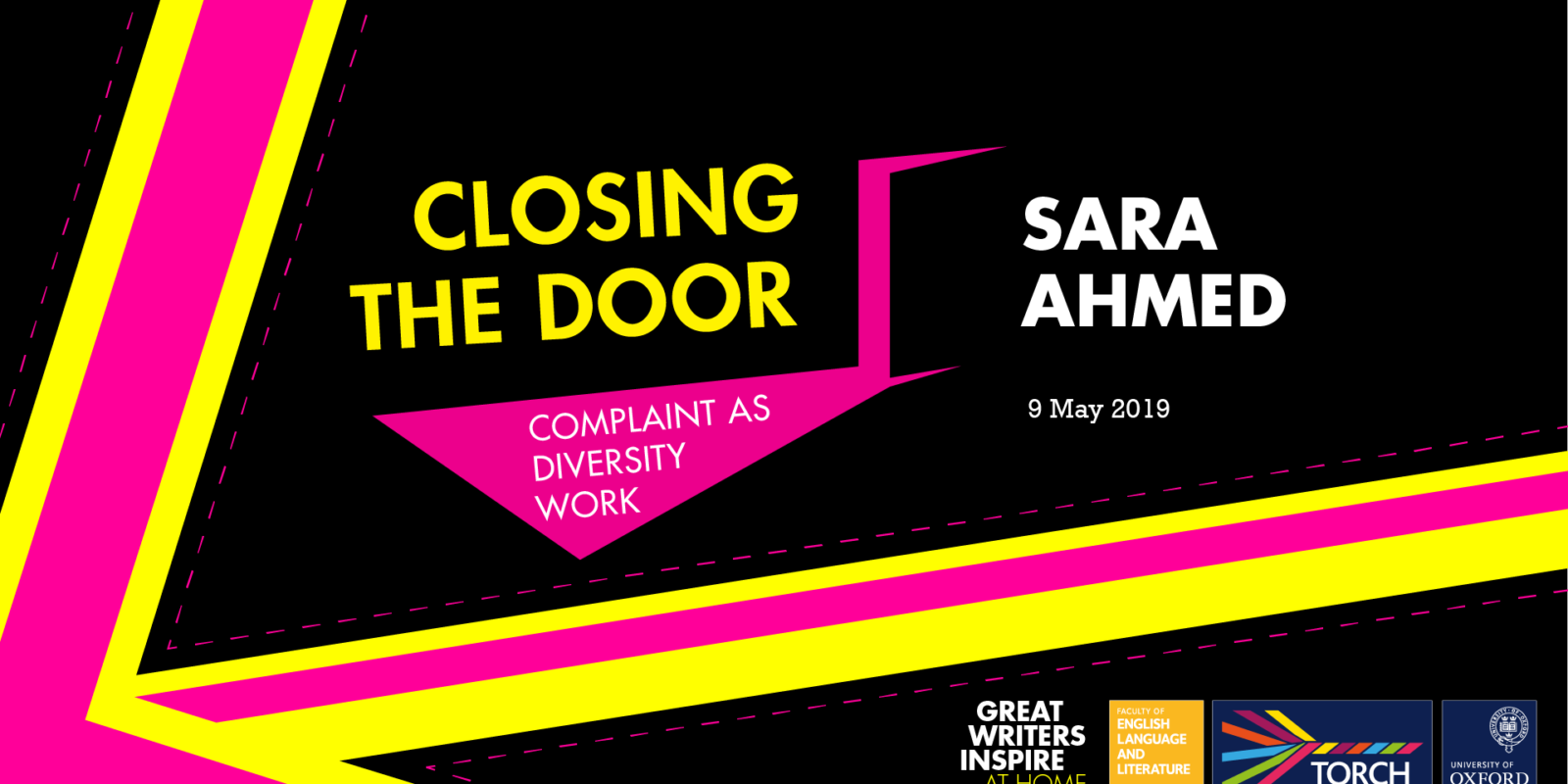Great Writers Inspire at Home: Sara Ahmed, ‘Closing the Door: Complaint as Diversity Work’
Text by Katherine Collins
Dr Sara Ahmed is a prolific feminist writer and an independent scholar whose work tunes into many of the challenges faced by contemporary Black and Asian British writers, and so into the live, evolving resource that is Writers Make Worlds.
Traditionally the voices of these writers are often misheard, especially by institutions. Yet, as is reflected on this website, these writers compose new cultural and linguistic environments in their work, often from scratch, and using whatever material is at hand. They make and mould exciting, new, different, worlds through their writing. They encourage us – through reading – to work out, and work through, new ways of thinking about the world, and thinking about ourselves in the world.
Writers Make Worlds speaker in the English Faculty on 9 May 2019 was, of course, a shining example of such a writer; one who encourages us to think with, and think through, the worlds she composes with language.
Sara Ahmed’s work is grounded in a feminist, queer, and antiracist politics. Her most recent publications are: On Being Included, a book about racism and diversity in institutional life; Willful Subjects, which explores the concept of will and wilfulness across a range of philosophical and literary texts. And, of course, the highly influential Living a Feminist Life. “Everyone should read this book,” bell hooks said.
What we hear in a very vibrant way in Ahmed’s most recent work, is the exciting idea of a world that might contain a feminist ear. A feminist ear, Ahmed writes, ‘picks up on the sounds that are blocked by the collective will not to hear. The sounds of no, the complaints about violence, the refusals to laugh at sexist jokes; the refusals to comply with unreasonable demands… To acquire a feminist ear, is to hear those sounds as speech.’
Focusing on these empowering refusals, Ahmed in her talk explores her research into complaint as what she calls diversity work. She draws upon many interviews with university staff and students who have made complaints about unfair, unjust or unequal working conditions. In this way, she has transformed the concept of the feminist ear into a method: a method that involves feminist listening and feminist support. As she says, ‘once those who have experienced harassment hear that you are willing to hear, they will speak to you. More and more people will speak to you.’
